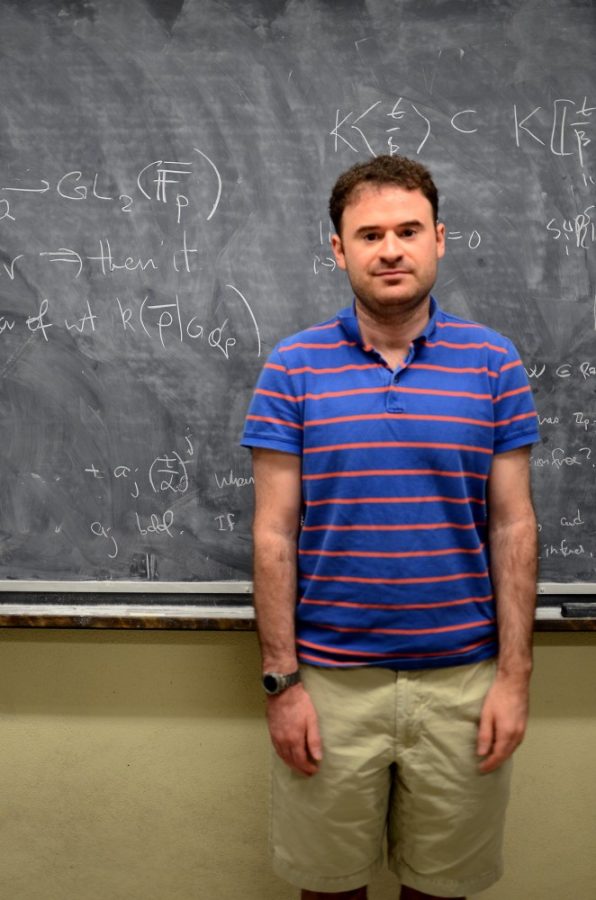David Savitt, associate professor in the department of mathematics, has always had a special connection with math.
“I don’t remember a time when I wasn’t interested in math,” Savitt said.
Savitt said his affinity for numbers became clear in elementary school, when he convinced his principal to let him into the accelerated math program.
“I remember my parents taking me to talk with her,” Savitt said, “and I explained the trick where you can tell that a number is divisible by nine by adding up the digits and seeing if the sum of the digits is divisible by nine … and I explained to the principal why this worked.”
Savitt’s interest has paid off. In late December he was awarded the Presidential Early Career Award for Scientists and Engineers.
In 2010, Savitt was awarded a career grant by the National Science Foundation for strong research and teaching. Savitt said the NSF nominates people for the PECASE out of the pool of career grants.
According to the NSF website, the PECASE is the highest honor the U.S. Government awards to scientists and engineers who show strong potential for leadership and scientific exploration.
On Dec. 23, Savitt was officially notified that he was a recipient of the PECASE.
“We were not at all surprised that he would be considered for this award,” said Daniel Madden, an associate professor and interim head of the department of mathematics. “He’s top in math research, earning him a growing reputation in number theory and geometry.”
The main area of Savitt’s research is number theory.
“What number theory is fundamentally about is about solving equations in whole numbers and rational numbers,” Savitt said.
An example of this is the Pythagorean Theorem and a 3-4-5 triangle. The relationship between the lengths of the sides of the triangle is easily explainable with whole numbers in an equation, and a formula can be developed to find all of the solutions.
One thing that fascinates Savitt is that a very similar triangle problem — establishing a relationship between the areas of the triangles instead of their side lengths — is currently unsolvable.
“I study certain patterns in whole numbers,” Savitt said. “There are very subtle patterns in integers that you wouldn’t notice just by looking at them, but they’re there. And they’re not so easy to understand, and they have a certain amount of symmetry.”
Along with his dedication to research and passion for teaching, Savitt’s commitment to community service also helped him win the PECASE.
Since 1996, Savitt has been working with mathematically talented high school students during a five-week summer program called Canada/USA Mathcamp. Though he is not the founder of the camp, he became one of the directors in 2002.
“There’s a lot you can do in the way of enrichment for high school students to show them the world of mathematics,” Savitt said.
Savitt will be recognized at the White House sometime this year for his accomplishments, though the exact date has yet to be determined.
“Getting an award like this is gratifying, and it’s going to be exciting to go to the White House,” Savitt said.








